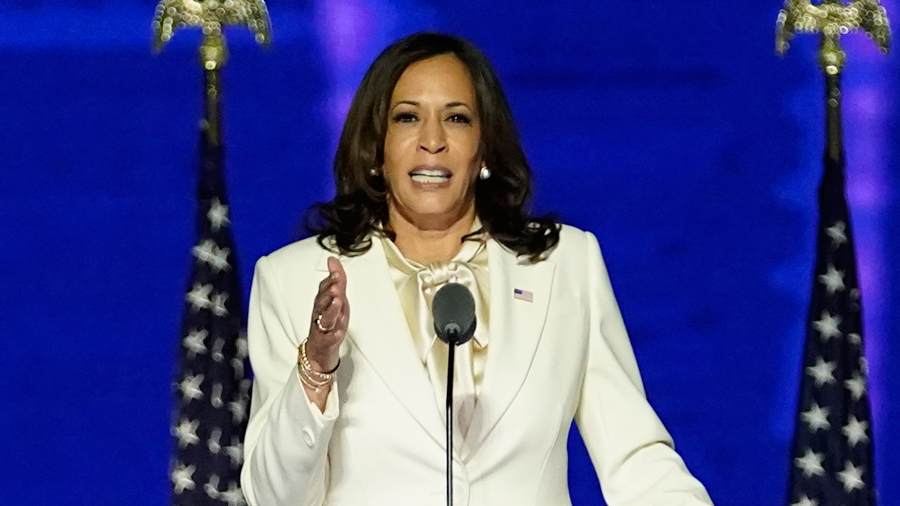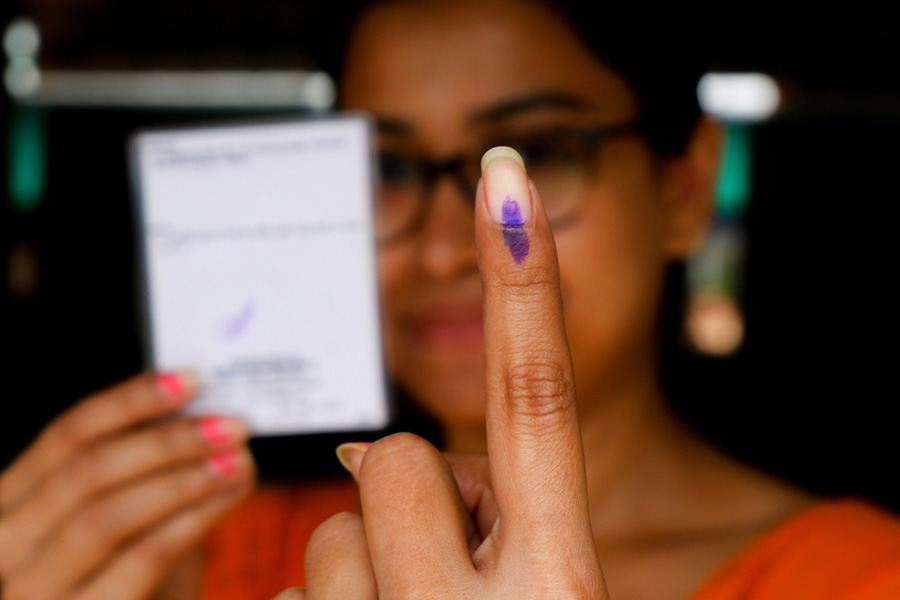Sir — The inauguration ceremony of the 46th president of the United States of America was historic in more ways than one. Not only did Kamala Harris take oath as the first woman vice-president — as well as the first person of Indian and black origin to hold that office — but Amanda Gorman, also a black woman, became the youngest poet to perform at a presidential inauguration. Her powerful poetry recital enthralled the audience present as well as viewers around the world. One hopes this appreciation of diversity and recognition of women and people of colour continue to be reflected in the policies framed by the new US administration.
Alicia Rozario,
Mumbai
Miracle workers
Sir — The Indian men’s cricket team scripted history by soundly defeating the Australians in their own backyard at the Gabba in Brisbane. By doing so, it won the Test series 2-1, and retained the Border-Gavaskar Trophy. This series win will always remain memorable for India’s gallant fightback after having suffered a humiliating defeat in the first Test of the series at Adelaide. In that match, the team achieved the dubious distinction of getting bowled out for the lowest-ever score of 36 runs in the second innings.
Cricket pundits all over the world had written India off for the rest of the series, with many predicting a 4-0 result in Australia’s favour. Moreover, after the debacle at Adelaide, the skipper, Virat Kohli, flew back to India on paternity leave. The captain’s baton was passed on to Ajinkya Rahane. Meanwhile, many of the front-line players suffered injuries one after the other, thus ruling out their participation in the rest of the series. India was truly playing with what many called its ‘B-team’. However, Rahane, who is known for his calm and composure, marshalled all his available resources into recovering from the first Test. He himself scored a century in the second Test at Melbourne, and led the depleted team, mostly comprising rookies, from the front to win the Test and level the series.
Hanuma Vihari and Ravichandran Ashwin batted resolutely throughout the fifth day of the Third test at Sydney to ensure a draw. The series-deciding fourth Test had a thrilling finish for India. Shubman Gill’s elegant batting, Cheteshwar Pujara’s grit and fortitude, Washington Sundar’s fightback, Rishabh Pant’s intelligent blending of aggression and caution and, crucially, the steely determination of Mohammed Siraj and Shardul Thakur helped India end Australia’s 32-year-long stint of being unbeaten at the Gabba. This was one of India’s finest overseas wins.
Tapash Chatterjee,
Calcutta
Sir — Team India stunned the world with its act at Brisbane. Even staunch supporters of the team would not have expected the miracle that unfolded, especially after India’s abject surrender at Adelaide. Perhaps the team was not adequately prepared to play the pink ball in a day/night match, which is what the Adelaide Test was. However, the Indians slowly got their bearings, and by the time they reached Sydney, the series became more competitive.
The icing on the cake was the victory at the Gabba. The team, written off as underdogs, had 328 runs to get. The players rose to the occasion: Washington Sundar and Shardul Thakur did not waste the opportunity given to them and put up an all-round show. Both T. Natarajan and Mohammed Siraj were impressive with their bowling of the new ball. There is no substitute for hard work; a combined team effort helped the men reach a tough target.
C.K. Subramaniam,
Navi Mumbai
Sir — India’s incredible victory at the Gabba — known till now as the ‘fortress’, since Australia had not been defeated there for over three decades — was deeply satisfying not just because of the stellar quality of cricket played by a ‘B-team’ but also because they served as fitting responses to the spectators at Sydney and Brisbane who made the Indian cricketers, especially Mohammed Siraj, targets of vile racial slurs. Visiting teams to Australia — and, indeed, minorities residing there — are no strangers to such racist abuse. One hopes that Cricket Australia and the Australian government will pay heed to this.
Aniket Basu,
Calcutta











